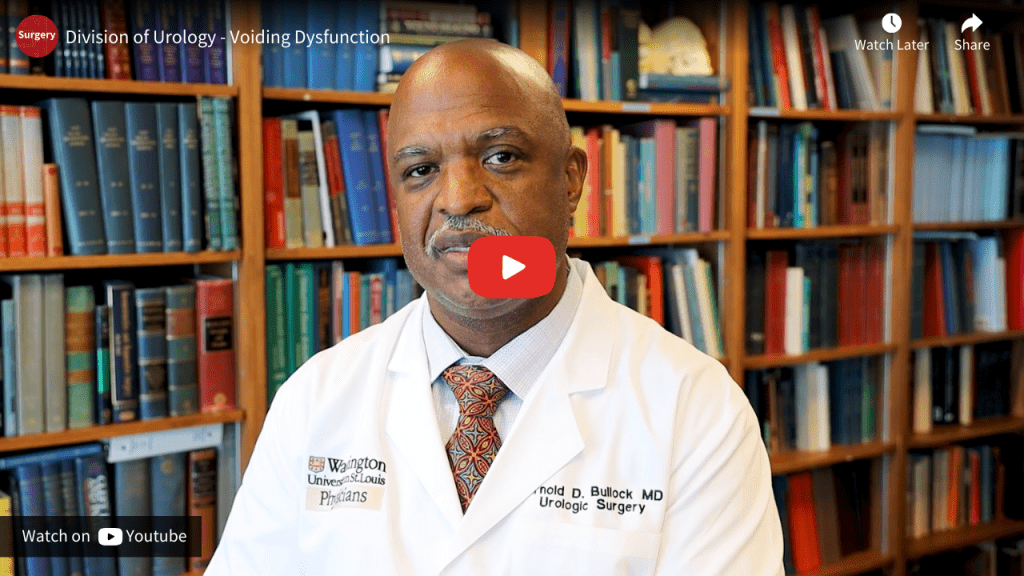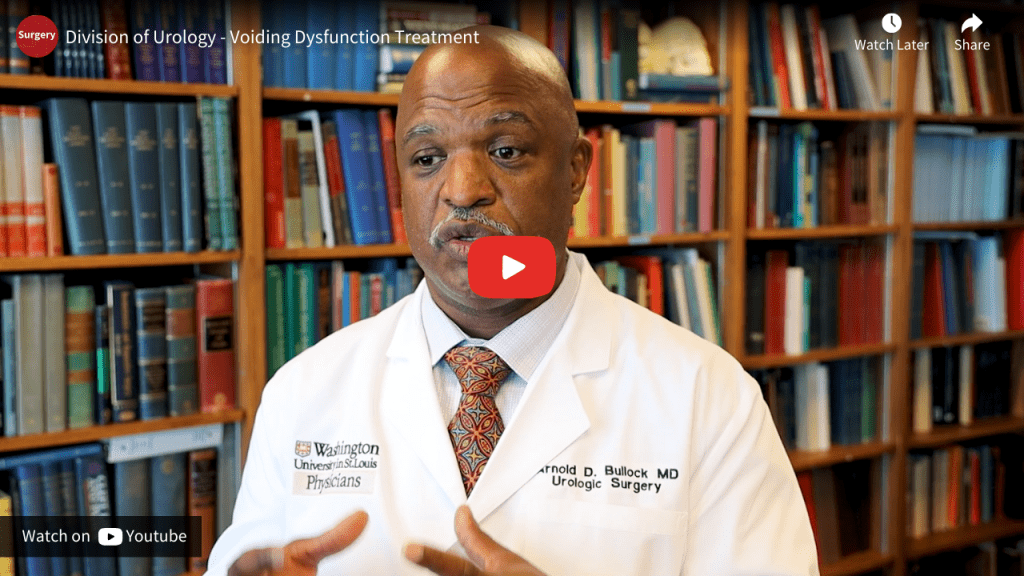
Men’s health topics are important to discuss with a doctor, but for many men it is difficult to have these conversations with their health care provider. Washington University urologic surgeons answer questions about urinary incontinence below.
Urinary incontinence is leakage of urine. It is not normal to have to wear a pad or to have regular spoiling of your undergarments. There are several effective means of correcting urinary incontinence, and these options have been available for more than 25 years.
There are 3 common types of urinary incontinence
- Stress urinary incontinence is related to insufficiency of the pelvic floor muscles
- Urinary urgency incontinence is related to an overly active bladder.
- Overflow incontinence is related to inability to empty the bladder


Stress incontinence is due to a weakness of the external sphincter muscle below the urinary bladder. There are several treatment options. There is no need for a man to accept wearing diapers.
- Pelvic floor exercises are effective for mild degrees of leakage. Leaning and performing the exercise techniques is simple, but patients have to be diligent. Improvement can be seen with a month.
- Urethral injections can be effective for mild degrees of incontinence. A bulking agent is injected within the external sphincter to tighten the muscle. The effect is immediate.
- Urethral sling placement is a minimally invasive outpatient surgical procedure to add a second site of urethral constriction. It repositions the proximal urethra and compresses the soft corporal spongiosum around the urethra. It is quite effective for mild to moderate stress incontinence.
- The Artificial Urinary Sphincter is placed surgically through small incision in the perineum (area behind the scrotum) and is an inflatable cuff that provides a second sphincter mechanism. It is used for more severe cases of stress incontinence, and is considered the ‘gold standard’ for effective treatment in men requiring several diapers a day.
Anything that irritates the bladder can lead to urinary urgency. When the urgency becomes severe, a person may not be able to prevent the bladder from contracting before reaching the toilet, resulting in urge incontinence. Urinary infections can be associated with urge incontinence.
In elderly men, a bladder infection could lead to prostatitis and incomplete bladder emptying. This could lead to overflow incontinence.
Alcohol can be another irritant of the bladder and be associated with urge incontinence. Alcohol also tends to result in increased urine production.
There are many different chemotherapy agents, and some are associated with urinary incontinence.
Urge incontinence is due to a spastic bladder. It is a failure of the bladder to accept normal filling volumes. Normally the bladder can hold 15 ounces of urine. It is not normal to have to ‘run’ to the bathroom. When men and women have to race to urinate, they have an overactive bladder.
Normally, we should have need to urinate when the bladder is nearly full. People who urinate frequently with only small voided volumes could have a primary bladder problem.
A simple means to evaluate for an overactive bladder is to use a 2 cup container and record the amount of urine volume with each void for a 24 hour period. When the average voided volume is under 7 ounces, there is either an overactive bladder or an obstructed bladder.
Men and women who have an overactive bladder have a failure to fill the bladder; they do not have a problem with emptying the bladder of urine. A simple, 20 second ultrasound scan in the urology office is used to measure the residual amount of urine in the bladder after voiding.
People with an overactive bladder are treated with medication to relax the bladder.
Washington University Urology can provide options and treatments for urinary incontinence. Meet our specialists below.


